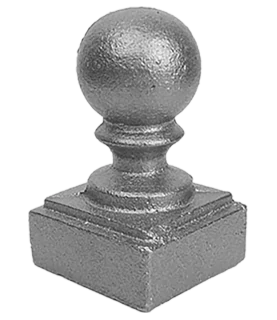Exploring the Beauty and Versatility of Ornamental Metals in Design
The Allure of Ornamental Metals Artistry and Functionality in Design
Ornamental metals have long been cherished for their unique ability to blend aesthetic appeal with functional applications. From ancient civilizations to modern architecture, ornamental metals have played a significant role in both decorative and structural elements of design. This article explores the enchanting world of ornamental metals, their various forms, techniques of craftsmanship, and their impact on contemporary design trends.
Historically, ornamental metals such as gold, silver, bronze, and copper were symbols of wealth and status. They were often used in religious iconography, royal artifacts, and intricate jewelry. The use of these metals in decorative contexts can be traced back to ancient Egypt, where gold was often employed for both its beauty and its symbolic association with the divine. These metals conveyed not only artistic skill but also cultural values and historical narratives.
The properties of ornamental metals contribute significantly to their desirability in design
. Metals like brass and bronze possess a warm tone and rich luster, making them ideal for decorative applications. Their durability and resistance to corrosion enhance their functionality in various environments, from outdoor sculptures to intricate interior designs. The malleability of these metals allows artisans to create detailed work, ranging from ornate railings to stunning wall art.One of the distinct characteristics of ornamental metals is the wide variety of finishing techniques that can be applied. Techniques like gilding, patination, and powder coating not only enhance the visual appeal but also provide protective layers that increase the longevity of the piece. Gilding, for example, involves applying a thin layer of gold leaf or gold paint to a surface, resulting in a strikingly luxurious effect. Patination, on the other hand, creates a unique surface texture through oxidation, giving metals an antique appearance that is highly sought after in modern design.
ornamental metals

In contemporary design, ornamental metals have seen a resurgence in popularity. Designers are increasingly drawn to these materials for their versatility and the depth they add to various projects. From residential interiors to commercial spaces, ornamental metals serve as focal points that can elevate an entire aesthetic. For instance, decorative metal screens and panels are used to create privacy in spaces while maintaining an open, airy feel. Sculptural installations made from metal can serve as conversation starters in galleries, parks, and public plazas.
Moreover, the sustainable movement has encouraged designers to repurpose or recycle metal materials, thus reducing waste and promoting eco-friendly practices. Upcycling old metal into new ornamental fixtures not only contributes to sustainable design but also infuses projects with a sense of history and individuality. This approach emphasizes creativity and resourcefulness, allowing artisans to tell stories through the materials they choose.
The integration of technology in the field of ornamental metals has also opened new avenues for innovation. Techniques such as laser cutting and 3D printing enable designers to produce intricate designs that would have been nearly impossible to achieve by hand. These advancements allow for greater precision and creativity, leading to unique and customizable solutions in metalwork.
In conclusion, ornamental metals represent a harmonious fusion of artistry and functionality. Their historical significance, aesthetic versatility, and technological advancements make them an essential material in modern design. As we continue to explore innovative ways to incorporate these metals into our environments, we celebrate the craftsmanship, creativity, and cultural heritage inherent in this timeless medium. Whether through a stunning piece of jewelry, an architectural feature, or a sculptural work of art, ornamental metals will undoubtedly continue to enchant and inspire for generations to come.
-
Wrought Iron Components: Timeless Elegance and Structural StrengthNewsJul.28,2025
-
Window Hardware Essentials: Rollers, Handles, and Locking SolutionsNewsJul.28,2025
-
Small Agricultural Processing Machines: Corn Threshers, Cassava Chippers, Grain Peelers & Chaff CuttersNewsJul.28,2025
-
Sliding Rollers: Smooth, Silent, and Built to LastNewsJul.28,2025
-
Cast Iron Stoves: Timeless Heating with Modern EfficiencyNewsJul.28,2025
-
Cast Iron Pipe and Fitting: Durable, Fire-Resistant Solutions for Plumbing and DrainageNewsJul.28,2025
-
 Wrought Iron Components: Timeless Elegance and Structural StrengthJul-28-2025Wrought Iron Components: Timeless Elegance and Structural Strength
Wrought Iron Components: Timeless Elegance and Structural StrengthJul-28-2025Wrought Iron Components: Timeless Elegance and Structural Strength -
 Window Hardware Essentials: Rollers, Handles, and Locking SolutionsJul-28-2025Window Hardware Essentials: Rollers, Handles, and Locking Solutions
Window Hardware Essentials: Rollers, Handles, and Locking SolutionsJul-28-2025Window Hardware Essentials: Rollers, Handles, and Locking Solutions -
 Small Agricultural Processing Machines: Corn Threshers, Cassava Chippers, Grain Peelers & Chaff CuttersJul-28-2025Small Agricultural Processing Machines: Corn Threshers, Cassava Chippers, Grain Peelers & Chaff Cutters
Small Agricultural Processing Machines: Corn Threshers, Cassava Chippers, Grain Peelers & Chaff CuttersJul-28-2025Small Agricultural Processing Machines: Corn Threshers, Cassava Chippers, Grain Peelers & Chaff Cutters












